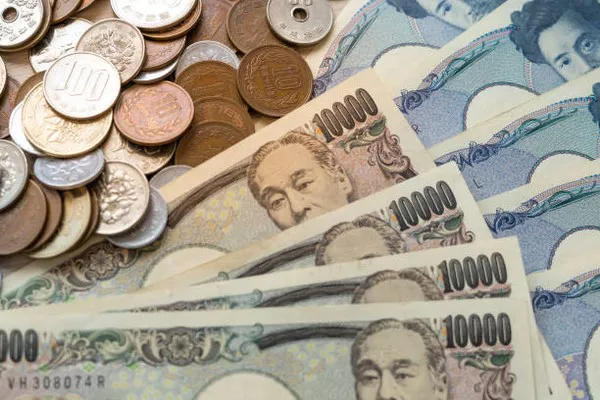In the realm of international economics, currency valuation plays a pivotal role in shaping a nation’s economic landscape. One currency that often garners attention due to its influence on global trade and financial markets is the Japanese yen (JPY). Over the years, debates have ensued regarding the desirability of a weak yen. While a weaker currency can offer certain advantages, it also brings about challenges that must be carefully considered. In this article, we delve into the intricacies of a weak Japanese yen, exploring its potential benefits and drawbacks, and examining its implications for various stakeholders.
Understanding Currency Strength and Weakness
Before delving into the implications of a weak Japanese yen, it’s essential to grasp the concept of currency strength and weakness. A currency’s value relative to other currencies is determined by a multitude of factors, including interest rates, inflation rates, economic performance, and geopolitical developments. When a currency depreciates in value compared to others, it is deemed weak, while appreciation signifies strength.
The Pros of a Weak Japanese Yen
Boost to Export Competitiveness: One of the primary benefits of a weak yen is its positive impact on Japanese exports. A depreciated currency makes domestically produced goods cheaper for foreign buyers, effectively enhancing the competitiveness of Japanese exports in global markets. This, in turn, can stimulate export-driven industries such as automotive, electronics, and machinery, fostering economic growth and job creation.
Support for Tourism and Services: A weaker yen can also attract more tourists to Japan and bolster the country’s service sector. Foreign visitors find travel and leisure activities in Japan more affordable when the yen is weak, leading to increased tourism spending and revenue generation for businesses in hospitality, entertainment, and retail.
Stimulus for Inflation: In an economy grappling with deflationary pressures, a weaker currency can serve as a catalyst for inflation. As the cost of imported goods rises due to currency depreciation, consumers may be incentivized to spend sooner rather than later, driving up domestic demand and prices. This can be particularly advantageous for central banks striving to achieve their inflation targets.
Debt Management: A weaker yen can alleviate the burden of servicing external debt denominated in foreign currencies. For Japan, which has a substantial debt load, a depreciated yen reduces the real value of its foreign liabilities, making debt repayment more manageable and lessening the risk of default.
The Cons of a Weak Japanese Yen
Import Cost Escalation: While a weak yen benefits exporters, it poses challenges for import-dependent industries and consumers. A depreciated currency leads to higher prices for imported goods and raw materials, increasing production costs for businesses and potentially eroding profit margins. Moreover, rising import costs can trigger inflationary pressures, squeezing household budgets and dampening consumer spending.
Risk of Capital Flight: Persistent weakness in the yen may raise concerns among investors about the stability of Japan’s economy and financial markets. This could prompt capital outflows as investors seek higher returns elsewhere, leading to volatility in asset prices and exacerbating liquidity issues. To mitigate the risk of capital flight, policymakers may need to implement measures to bolster market confidence and attract investment.
Impact on Standard of Living: A prolonged period of currency depreciation can have adverse effects on the standard of living in Japan. As import prices rise and purchasing power diminishes, consumers may experience a decline in their real wages and discretionary spending capacity. This can contribute to economic hardship for households, potentially leading to social unrest and political discontent.
Global Trade Tensions: A weak yen can exacerbate trade tensions between Japan and its trading partners, particularly if they perceive it as a deliberate attempt to gain an unfair competitive advantage. This could prompt retaliatory measures such as trade barriers or currency manipulation accusations, disrupting international trade flows and undermining diplomatic relations.
Navigating the Implications
Given the complex interplay of factors involved, policymakers in Japan face the challenging task of navigating the implications of a weak yen. While striving to harness the benefits, they must also address the challenges to ensure sustainable economic growth and stability. Here are some strategies that can be employed:
Balanced Monetary Policy: The Bank of Japan (BOJ) plays a crucial role in managing currency fluctuations through its monetary policy decisions. By adopting a balanced approach that takes into account both domestic economic conditions and external factors, the BOJ can mitigate the risks associated with excessive currency depreciation while supporting export competitiveness and inflation targets.
Structural Reforms: To enhance the resilience of the economy against external shocks, Japan should prioritize structural reforms aimed at boosting productivity, promoting innovation, and diversifying export markets. By investing in education, technology, and infrastructure, the country can reduce its reliance on currency devaluation as a means of maintaining competitiveness.
Diplomatic Engagement: Effective communication and cooperation with trading partners are essential to address concerns about currency manipulation and trade imbalances. Japan should engage in constructive dialogue through multilateral forums such as the G20 to promote transparency, exchange rate stability, and fair trade practices.
Diversification of Economic Drivers: Beyond export-led growth, Japan should focus on diversifying its economic drivers to reduce vulnerability to currency fluctuations. This includes supporting small and medium-sized enterprises (SMEs), fostering the development of new industries, and promoting domestic consumption to create a more balanced and resilient economy.
In conclusion, the question of whether a weak Japanese yen is beneficial is multifaceted and requires a nuanced understanding of its implications. While currency depreciation can provide short-term advantages such as boosting exports and stimulating inflation, it also poses risks such as import cost escalation and capital flight. By adopting a comprehensive approach that combines monetary policy measures, structural reforms, and diplomatic engagement, Japan can harness the benefits of a weak yen while mitigating its adverse effects, paving the way for sustainable economic prosperity in the long run.


